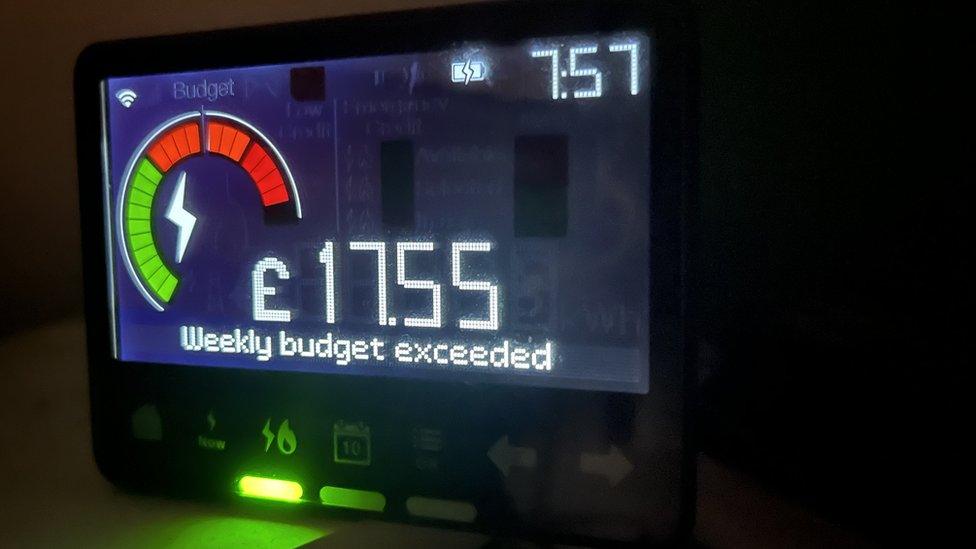Energy bills support took too long to get to people - MPs
- Published

The government's energy bills support scheme took too long to get to those most in need, MPs said.
The Public accounts committee (PAC) said ministers must clarify how they will protect consumers from future price rises "as a matter of urgency".
Support schemes were launched last year to help with energy bills after price increases.
The PAC said about 1.7 million people, including vulnerable people, were left waiting months for help.
The committee has concerns about the government's lack of urgency on high energy bills for consumers.
Since last October, household energy bills have been limited to 拢2,500 under the .
The (EBSS) also gave every household a 拢400 discount on their energy bills for winter 2022 to 2023. This ended in March 2023.
A separate was targeted at businesses.
'Serious concerns'
The PAC said the schemes were introduced quickly, but the lack of understanding of customers' circumstances meant it took too long to get help to some of those most in need.
Some 900,000 customers without a direct relationship to a domestic energy supplier, such as those in park homes or living on boats, had to wait until 27 February 2023 to be able to apply for the EBSS.
And 836,000 households in Northern Ireland only began receiving support with their energy bills from the EBSS in January 2023, three months later than in the rest of the United Kingdom.
The PAC said people were left waiting months for help due to the government's "lack of bandwidth" to ensure all groups, including vulnerable people, received support at the same time.
The committee also highlighted "unacceptable practices" of suppliers forcing entry into vulnerable customers' homes to install prepayment meters.
This has been banned by Ofgem for British Gas but only suspended in voluntary arrangements with other energy suppliers.
The cross-party group said it had "serious concerns" about the Department for Energy Security and Net Zero's (DESNZ) "lack of urgency in addressing the energy market failures that are leading to high energy bills for consumers".
The largest schemes resulted in the department providing support to some homes and businesses that did not necessarily need it.
'Impossible choices'
A DESNZ spokesman said the committee's report failed to recognise "the complexities of delivering support to households without a direct relationship with a supplier".
"It's right we made sure there was a robust system to help protect people against fraud before rolling it out," he added.
The department said it had delivered nearly 拢40bn in support, with 83% of energy bill support vouchers now redeemed, including people in Northern Ireland.
The committee said a quarter of vouchers for two million households on prepayment meters had not been redeemed by February, the most recent figures available.
Labour MP, Dame Meg Hillier, who chairs the PAC, said: "The surge in energy prices has caused serious difficulties and hardship for households across the UK.
"It is of course welcome to see government moving quickly to put in place support for both households and businesses to keep the lights on.
"But many of those who most needed help were kept waiting longest for it. For some households, every day left without support presented impossible choices.
"We need to see better understanding from government on vulnerable customers' circumstances so that help can be prioritised for those who need it most, and to deliver value for money in these extremely expensive schemes.
"Almost halfway through the year we have not yet seen plans to ensure energy affordability for the coming winter."